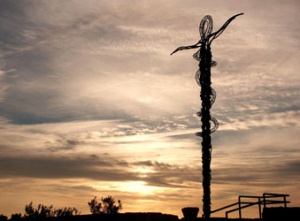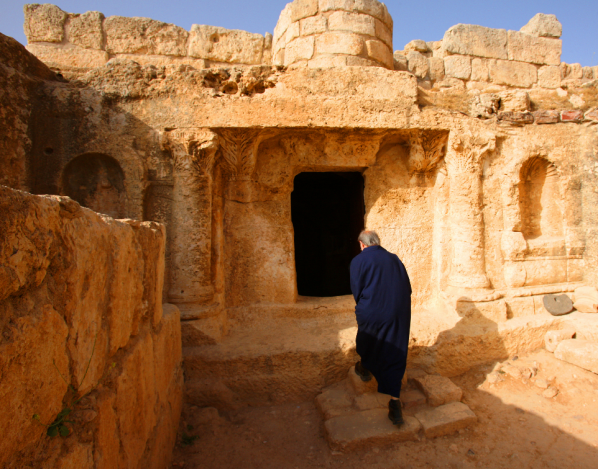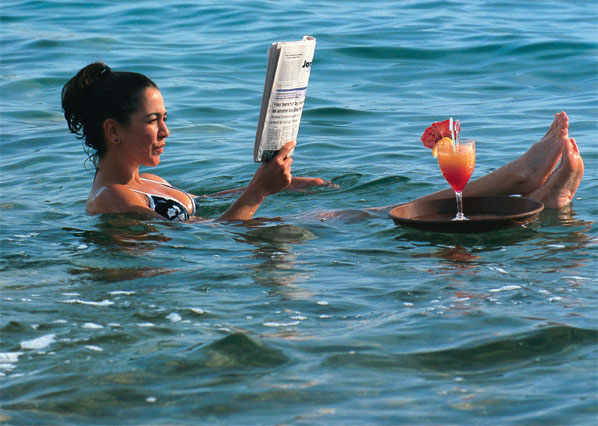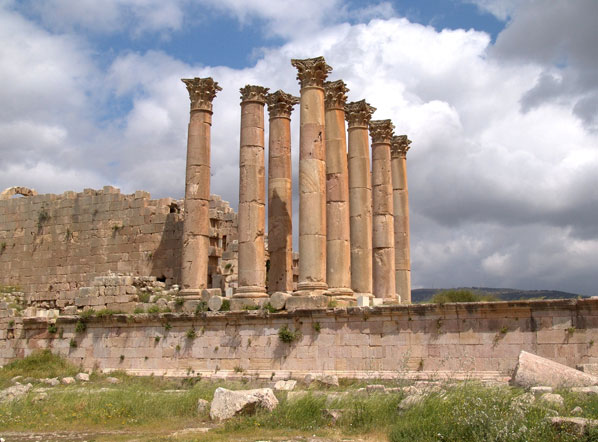Guilty by association: Tourism in Jordan

As late as December 2010 Jordan was being mooted as a possible destination for the Royal Honeymoon.
With her parents both working for British Airways, the Duchess of Cambridge – Catherine Middleton to many – spent her formative years in Amman and still maintains strong links to the local community, leading many to suggest she and new husband Prince William would head to the Middle Eastern destination after their wedding in April.
But, what a different six months makes.
Regime change in Tunisia and Egypt, followed by unrest in Syria, Bahrain and Libya put pay to these plans, spooking security chiefs at Clarence House.
This, despite Jordan itself being relatively stable. Indeed, much of the unrest which has swept the region in recent months has passed Jordan by.
King Abdullah II of Jordan
King Abdullah II - while not wildly popular – has offered tax breaks, food subsidies and an amnesty for convicts as concessions in a seemingly successful attempt to quell unrest.
Laws relating to public gatherings have also been relaxed, voting reform is in the offering and demonstrations have been peaceful, making reform, not revolution, the order of the day.
“Our proven history as an oasis of stability in a turbulent region remains a solid fact despite the unfortunate events,” plaintively explains Nayef Al Fayez, managing director of Jordan Tourism Board (JTB).
“So does our image as a safe, secure, and hospitable destination.”
Not that this makes much difference to international tourism.
Visitor numbers are significantly down on last year, with many potential guests staying away until the situation on the ground is resolved.
As is so often the case, misinformation has hit tourism hard in Jordan, with the entire Middle East tarred with the same brush. “Jordan is in a rough neighbourhood” jokes Anwar Atalla, director of Marketing for Royal Jordanian.

Religious tourism plays a strong role in Jordan
Holy Land: Tourism in Jordan
But what will those who do visit find in Jordan?
Petra is the first answer on most lips, with the Nabataean fortress comfortably the most recognisable icon on the domestic tourist trail.
But the UNESCO World Heritage Site is just the tip of the Jordanian cultural tourism offering. Its location at the nexus of three major world religions – Judaism, Christianity and Islam – has left Jordan a legacy of precious sites ripe for sightseeing.
From the centuries old mosaics of Madaba to Mount Nebo - where Moses left his people to receive a vision of the Holy Land – Jordan is packed with excursions for the devout.
The relatively liberal capital Amman battles Beirut for the title of hippest nightlife destination in the Middle East, while – on the luxury side – the spa resorts on the Dead Sea are considered among the most desirable wellness destination in the world.
Of these, the Mövenpick Hotels – Dead Sea is arguably the best, offering guests a soothing, therapeutic atmosphere with an oriental flair.
The deserts of Wadi Rum are also something of an undiscovered paradise, with local Bedouin offering overnight excursions, camel trekking, 4X4 trails and even hot air balloon rides.
Jordan also maintains an annual $1 billion medical tourism industry.
A fall in visitor numbers may also prove to be a boon for those that do take up the option of a trip.
As Peter Hilton, Middle East product manager for Cox & Kings, explains: “We do accept that visitor numbers are unfortunately down to Jordan but the country has always been safe, and hasn’t been affected by any of the events that have occurred elsewhere in the Middle East.
“Visitors to Jordan’s famous sites therefore have far fewer tourists so now is a perfect opportunity to visit and get the photograph that everyone wants: the famous Indiana Jones shot of Petra’s Treasury, with no one else in it.”

Mövenpick Hotels – Dead Sea is considered among the best in the region
Holiday Ideas in Jordan
Practically Jordan is a very attractive destination.
A visa – lasting one month – can be obtained for 20 dinar upon arrival and extended with the minimum of fuss.
Flag-carrier Royal Jordanian offers a comprehensive regional network – including 29 destinations in the Middle East. RJ – as the locals affectionately call the carrier – also has 11 Boeing 747 Dreamliners on order for 2014-2017, with services to North America the likely beneficiary.
bmi also offers departures from London and, with easyJet recently moving into the market, the potential for Jordan to grow as a mid-haul weekend break destination can only increase.
English signage, a developed road network and cheap petrol – with prices at less than half of those in the UK – also make the country attractive as a fly-drive location. Indeed, nearly 60 per cent of those visiting Jordan from the UK do so independently, navigating the country alone or with a guide from the Jordan Tourist Board.
An international driving licence is required.
What is more, Jordan is safe, with the British Foreign & Commonwealth Office (FCO) advising there are “no specific threats to the safety of British visitors”.

Concerns have been raised over the future of the Dead Sea
Dead Sea: Jordanian Concerns
Despite these manifest strengths, Jordan faces a struggle to improve its standing on the global tourism stage, with some of its key assets under considerable strain.
The Dead Sea, for one, is shrinking at a striking rate. Already the lowest place on earth, the water level is receding at nearly one metre per year, with experts now predicting it may disappear completely by 2050.
This would be disastrous for not just Jordan, but for the wider region. Spa resorts along the coast – which have traded on the healing powers of the vitamin rich waters for decades – face ruin, with Israel also likely to be hit.
Compromise to save the Dead Sea, however, also seems unlikely.
Irrigation of the River Jordan by Israel, dams in Syria and the impact of global warming all present seemingly intractable barriers to the survival of this most famous sea.
Geopolitics also presents a challenge for Jordan.
In the recent past visitors have tended to stopover as part of a wider tour of the region, taking in Petra, a night in Amman and a visit to the Bedouin camps scattered across the country before departing for the holy sights of Israel, Syria, Lebanon or Iran.
With the political situation in flux for much of 2011, this source of trade has dried up, with many taking a monolithic view of the Middle East as “dangerous”. American visitors, in particular, are likely to take this line, steering clear of the whole region.
Some resorts have seen occupancy rates fall by nearly 60 per cent when compared to last year, despite the relatively stable conditions in Jordan and virtual absence of political violence on the streets.

With numbers down, now could be a good time for visitors to Jordan
Looking to the Future
In the short-term Jordan will be best served by a curtailment of political violence in the Middle East, as ill-informed visitors are unlikely to distinguish between what is safe and what is not.
In the longer-term tourism insiders in Jordan have good cause to feel optimistic.
A world-class collection of ancient sites, a modern, forward looking capital, excellent connections and infrastructure and a developed hotel offering all point to a successful destination.
Now might even be the best time to visit, as when the message gets out Jordan is sure to become a whole lot more popular.

